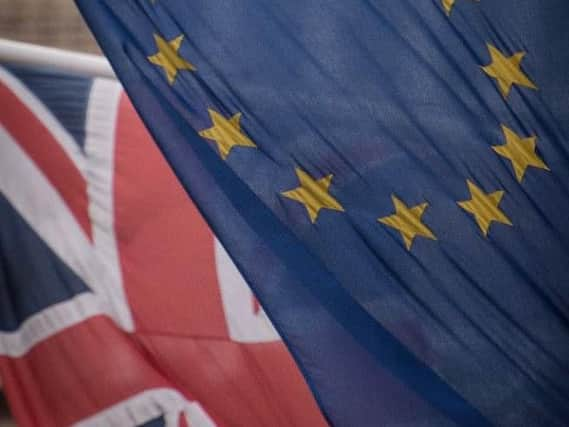This is who people in Yorkshire can vote for in the 2019 European elections


There are 751 Members of the European Parliament (MEPs). Of those, 73 represent the UK, with six for Yorkshire and the Humber. Each country is allocated a set number of seats, roughly depending on the size of its population. The UK’s MEPs represent different regions of the country. Again this is according to proportional representation with the regions with more people getting more MEPs.According to the European Parliament, MEPs are a nation's elected representatives in the EU and they represent your interests and those of your city or region in Europe. They listen to people with local and national concerns, interest groups and businesses, and can question and lobby European leaders. As part of the European Parliament they decide on the EU budget and influence how EU money is spent.
Advertisement
Hide AdAdvertisement
Hide AdThe current MEPs for Yorkshire and the Humber are Jane Collins (Ukip), Linda McAvan (Labour), John Procter (Conservative), Amjad Bashir (Conservative), Richard Corbett (Labour) and Mike Hookem (Ukip). They took office in July 2014, other than Mr Procter, who replaced Timothy Kirkhope as MEP in 2016 after his elevation to the Lords. Jane Collins and Linda McAvan have both said they won't stand this time. While most UK MEPs are also members of a national party, once in the European Parliament they sit in one of eight political groups which include MEPs from across the EU who share the same political affiliation. Member states can run elections to the European Parliament according to their own national laws and traditions, but they must stick to some common rules. MEPs must be elected using a system of proportional representation - so, for example, a party which gains a third of the votes wins a third of the seats. In the UK, each political party can field up to six candidates, ranked in order - meaning that if a party wins two seats in any region its top two candidates are elected.
If you want to vote in the UK you must register by May 7. You only need to register once - you do not need to register separately for every election. You must register again if you’ve changed address, name or nationality.Here are the candidates for Yorkshire and the Humber - ranked in orderChange UK – The Independent Group Diana Paulette Wallis Juliet Lodge Sophia Bow Joshua Paul MalkinRosanne Clare McMullen Steven WilsonConservative and Unionist Party
John Michael Procter Amjad Bashir Michael James Naughton Andrew Lee Matthew Graham Freckleton Sue Pascoe English Democrats
Advertisement
Hide AdAdvertisement
Hide AdDavid Stewart Allen Tony Stewart Allen Joanne Allen Fiona Allen Green Party
Magid Magid Alison Clare Teal Andrew Varah Cooper Louise Houghton Lars Martin Kramm Ann Christine Forsaith Labour Party
Richard Graham Corbett Eloise Karen Todd Mohammed Jawad Afzal Khan Jayne Marie Allport Martin Trevor Mayer Alison Louise Hume Liberal Democrats
Shaffaq Mohammed Rosina Jane Robson James Christopher Blanchard Sophie Jane Thornton James Douglas Baker Ruth Christine Coleman-Taylor The Brexit Party
Advertisement
Hide AdAdvertisement
Hide AdJohn Longworth Lucy Elizabeth Harris Jake Pugh James Rupert Heartfield Andrew Allison Christopher Barker The Yorkshire Party
Chris Whitwood Mike Jordan Jack Carrington Laura Marie WalkerBob Buxton Dan Cochran UK Independence Party
Mike Hookem Gary Colin Shores John Robert Hancock David Alan Dews Graeme Boyd Waddicar Clifford Parsons